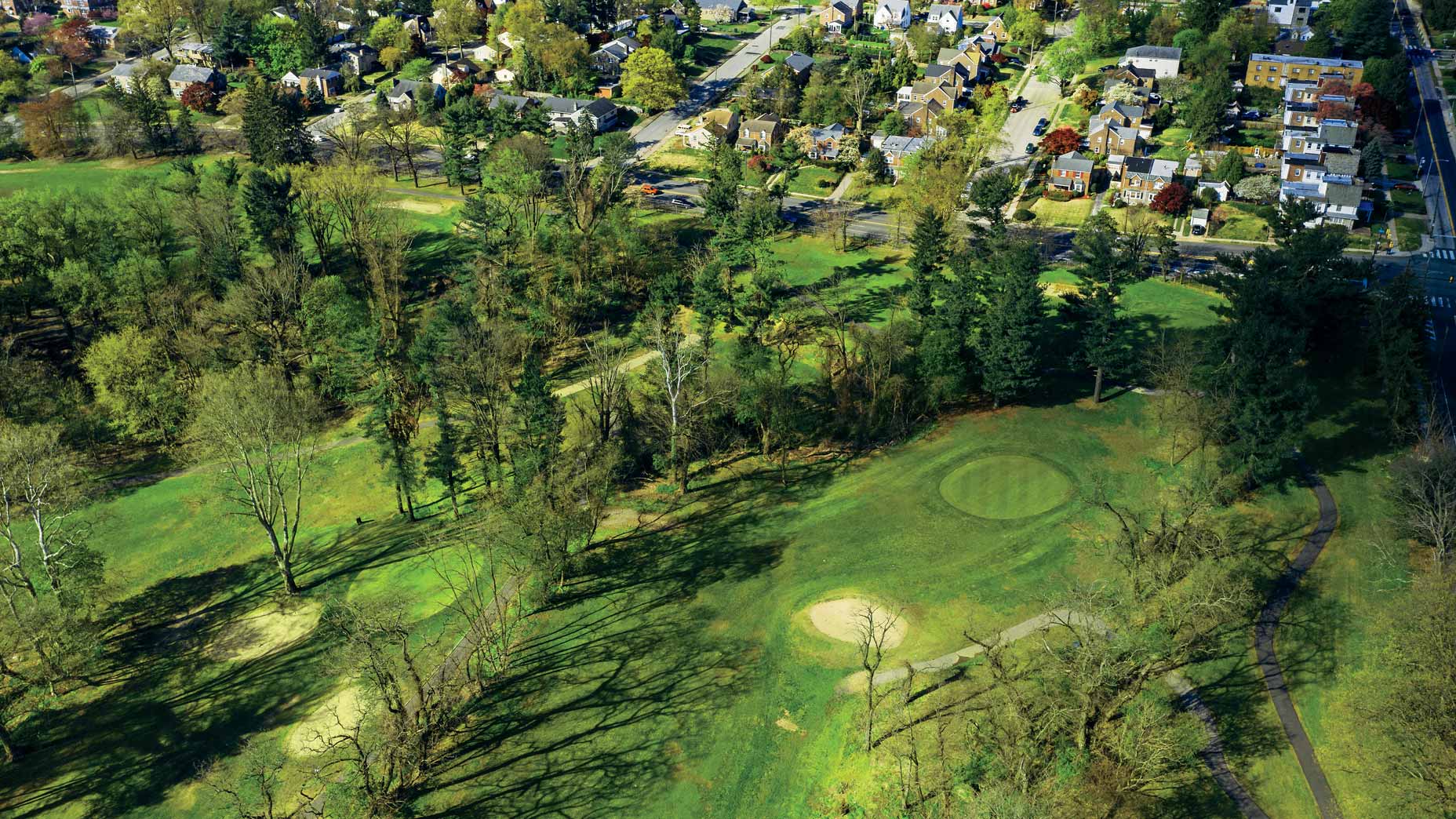There’s a coffee shop near my house, in Philadelphia, that draws an unlikely collection of golf bums. Nick Gregory, who played tennis at Temple, is a juggler by trade and can be seen juggling two wedges and a 9-iron while waiting for his tee time at Walnut Lane, a nearby, city-owned public course. Ken Marini, a carpenter and theater director, who used to teach at Richard Metz, the legendary golf studio in midtown Manhattan, lives next door to the coffee shop. He plays Walnut Lane, a wee par 62, with three clubs under his arm: 5-iron, wedge, putter. And then there’s Rob Baird, who has a doctorate in the history of religion and who needs about three hours to play nine holes at Walnut Lane. Hey, you try playing in a foursome, and behind a foursome, in which everybody has Parkinson’s disease.
For the past couple years, Walnut Lane has cleared the course on quiet Thursday mornings in summer for small outings of golfers with PD, because that’s the kind of place Walnut Lane is.
Maybe you’ve seen our new weekly feature on GOLF.com, Muni Monday, organized by my colleague Dylan Dethier. Well, the magazine is all-in on the craze, too.
Walnut Lane was busy on a recent Saturday afternoon. Not with golfers, unfortunately. (Hey 19, screw you!) But with walkers, joggers, bikers, plus two little kids using a front-nine trap as their personal sandbox. Nobody was being chased away. Walnut Lane doesn’t chase away.
Okay, yes, there are limits to Walnut Lane’s tolerance. The course abuts a magnificent park. A while back, a family, new to this country, wandered onto the 1st fairway, blanket and picnic basket in hand, and set up shop. On a busy day with a full tee sheet. Sean Ketchum, the Walnut Lane pro, had to escort the family off the course, in a hurry.
The place is not genteel. Walnut Lane requires shirts but not collars. The veterans group that plays on Wednesday afternoons is not a collar crowd, though the Tuesday-night ladies league is more decorous. There are college kids who play bumper cars with the saggy electric carts. (The golf cart’s eternal appeal!) A clubhouse game of Tonk, a cousin of gin rummy, was once on the verge of going Hamilton-Burr on account of a single George Washington. Some years after Walnut Lane became the home of a First Tee program, Ketchum pulled the plug on clubhouse card games on account of the youths.
Clubhouse, by the way, is kind of grand here. It’s a red-painted wooden box with a snack bar and a barrel of $2 used golf balls. Gary Player did once drop in, but only because he got lost on his way to a course he designed, a few miles up the road and outside the city limits.
Some of the First Tee kids take the 32 bus to the course, on the corner of Walnut Lane and Magdalena Street. Thousands of kids have come through the program, run by a retired Army helicopter pilot named Bill Hyndman V, who goes by King. His grandfather, Bill III, played in eight Masters tournaments, but you’ll never hear King talking about that. The kids don’t want old-timey. They want to see that golf ball in the air. About a third of them are black, about a quarter are from Spanish-speaking homes and four in 10 are girls. Hallelujah. Golf with open arms. It’s a beautiful thing.
For years, John Chaney, the legendary Temple basketball coach, would saunter in about high noon, all growly and wise without even trying. You hit a good shot? So what? You still gotta play the next one. A lot of munis have a Coach Chaney. If you see one, sit down and learn yourself something.
Beside the course are two famous cheesesteak spots, Dalessandro’s, jammed with tourists, and Chubby’s, preferred source for the Walnut Lane crowd. You’ll see the Wednesday-afternoon veterans eating their cheesesteaks in their cars before heading out.
Rob Baird, the history of religion scholar with Parkinson’s, does not descend from the Bairds of Gullane, Scotland. He’s from the Bardchevsky line, out of Minsk, Russia. “Golf is not a religion,” he’ll tell you. “It’s a devotion.”
Along those same lines, nobody would call Walnut Lane hallowed ground. But it is a sanctuary.
